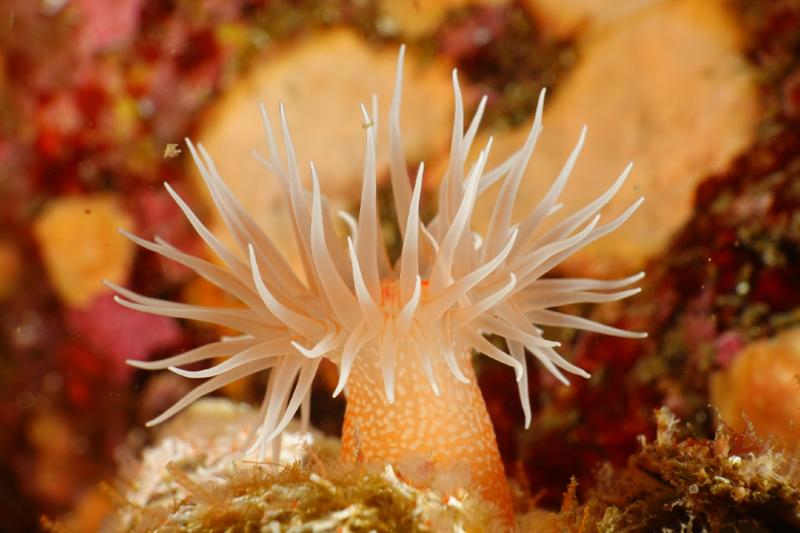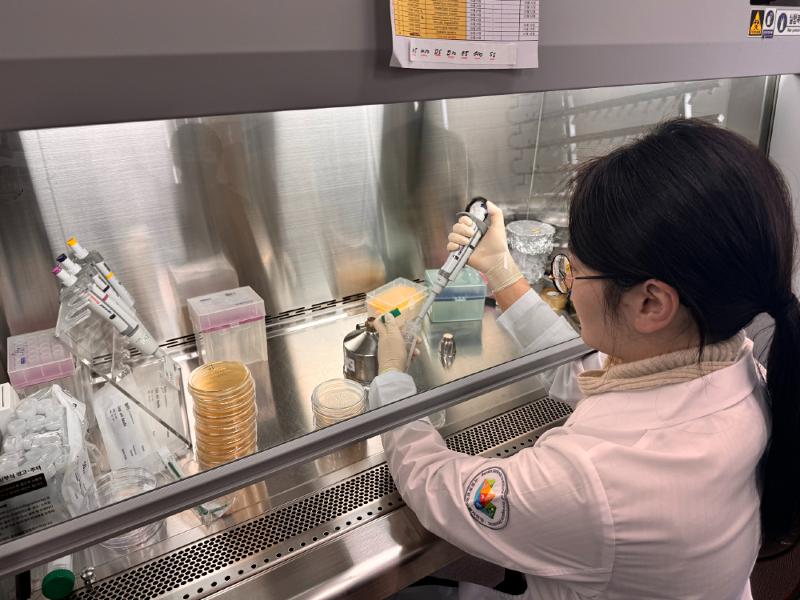
The Ministry of Environment on March 4 announced its development of an antimicrobial peptide using Halcurias carlgreni, a native sea anemone (pictured) mostly found in waters off Jeju Island, that kills antibiotic-resistance bacteria.
By Yoon Sojung
Photos = Honam National Institute of Biological Resources
An antimicrobial peptide that effectively treats wounds and lung disease using an indigenous sea anemone (Halcurias carlgreni) mostly found in waters off Jeju Island has been developed by Honam National Institute of Biological Resources under the Ministry of Environment.
Antimicrobial peptides, or short proteins that kill or inhibit bacteria, virus or mold, have recently received attention as alternatives to treating antibiotic-resistant bacteria.
The ministry on March 4 said the development of the peptide was thanks to a research team of Chonnam National University professor Cho Namki, the peptide research team of the domestic bioinformatics company Insilicogen and Dr. Yoo Guijae from the Functional Platform Research Group of the Korea Food Research Institute.
Researchers used artificial intelligence (AI) to swiftly derive 11 functional candidates for antibacterial substances from about 28,000 protein sequences. They went on to develop a peptide that treats wounds and lung disease through experiments on candidate antimicrobial substances and applied for a patent in January.
An antimicrobial peptide is a natural substance derived from the native sea anemone found mostly around Jeju. It showed a strong antibiotic effect on the bacterium Pseudomonas aeruginosa, which causes a number of ailments like skin infection, pneumonia and sepsis.
Tests found that the peptide helped regenerate collagen and blood vessels and reduced the size of the wounded area up to 82%. In experiments for lung disease, it inhibited bacillus pyocyaneus 81% in alleviating damage to and protecting tissue, showing a similar effect to conventional antibiotics.
The ministry said a simple structure makes the peptide easy to synthesize and produce economically. Compared to conventional antibiotics, it has lower toxicity and risk of side effects, giving it high potential for commercial application as a natural antibiotic or an alternative treatment for diseases caused by Pseudomonas aeruginosa deemed difficult to treat.
Choi Kyung Min, director of the Honam institute's Department of Bioresource Industrialization and the Advanced Research Center for Island Wildlife Biomaterials, said, "We will keep conducting innovative research to help human health and the environment by searching for the biological potential of islands and coastal areas."

Using artificial intelligence, researchers through experiments quickly came up with 11 functional candidates for antibacterial substances from about 28,000 protein sequences to develop the antimicrobial peptide, which treats wounds and lung disease.
arete@korea.kr